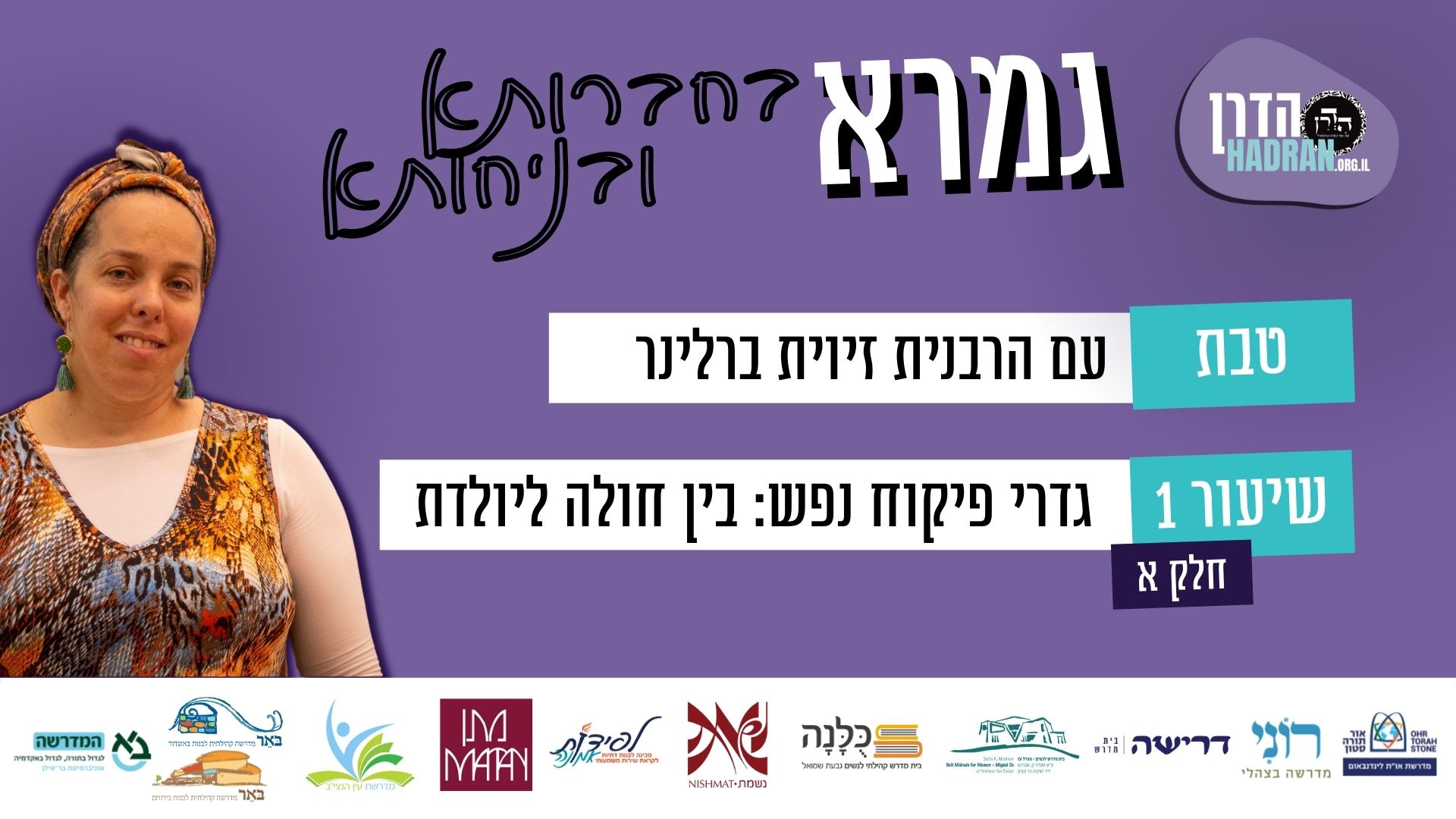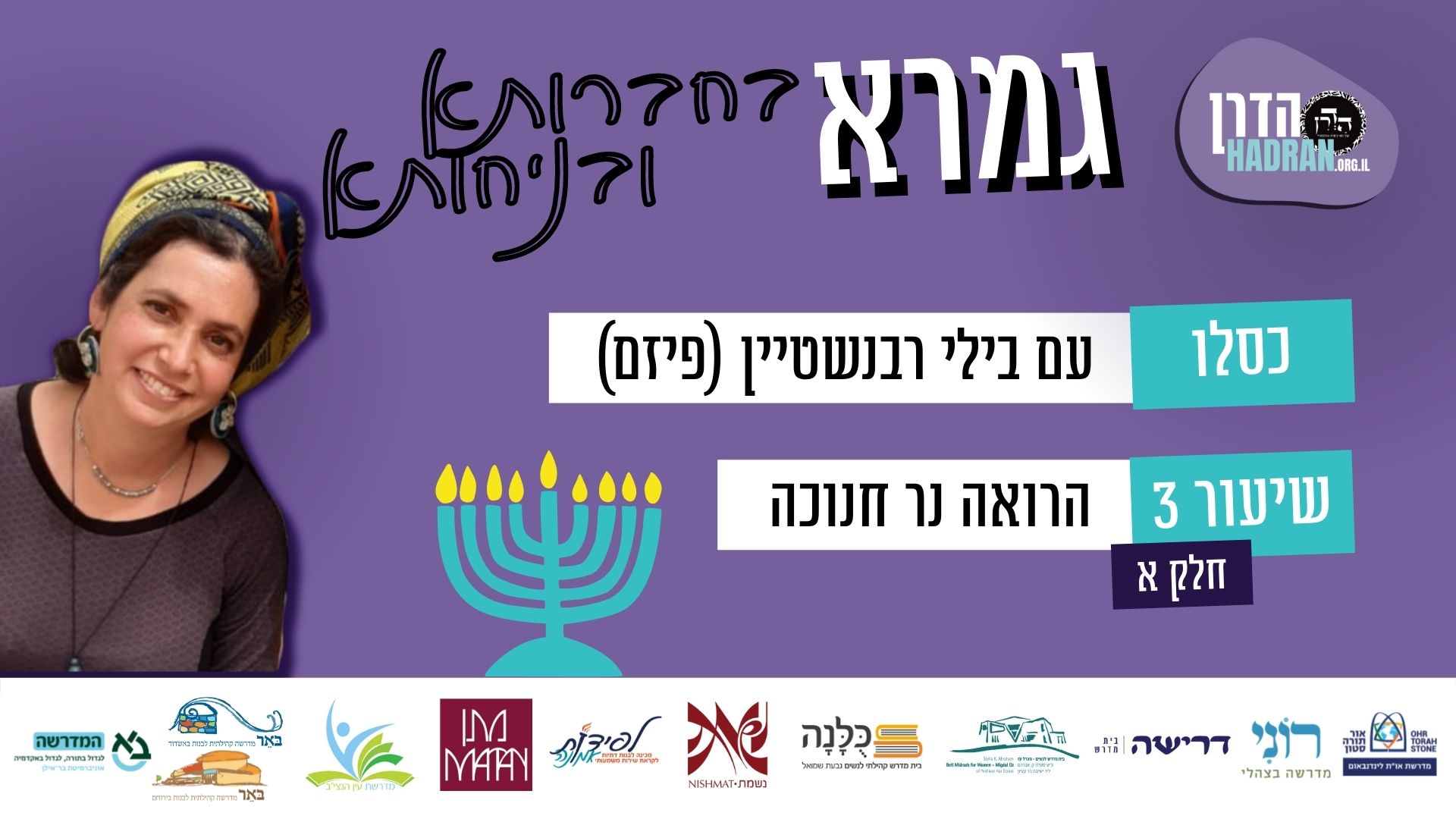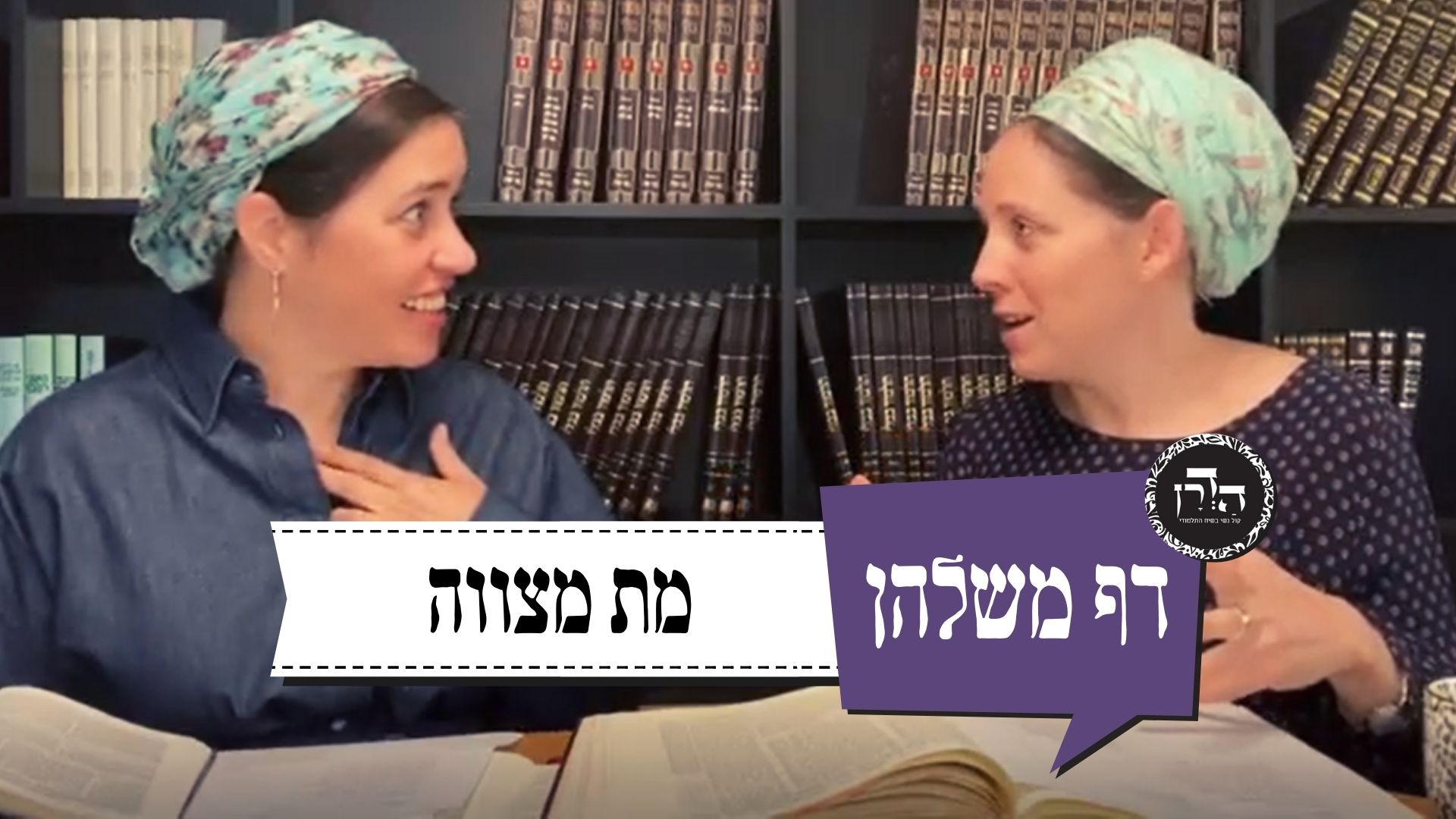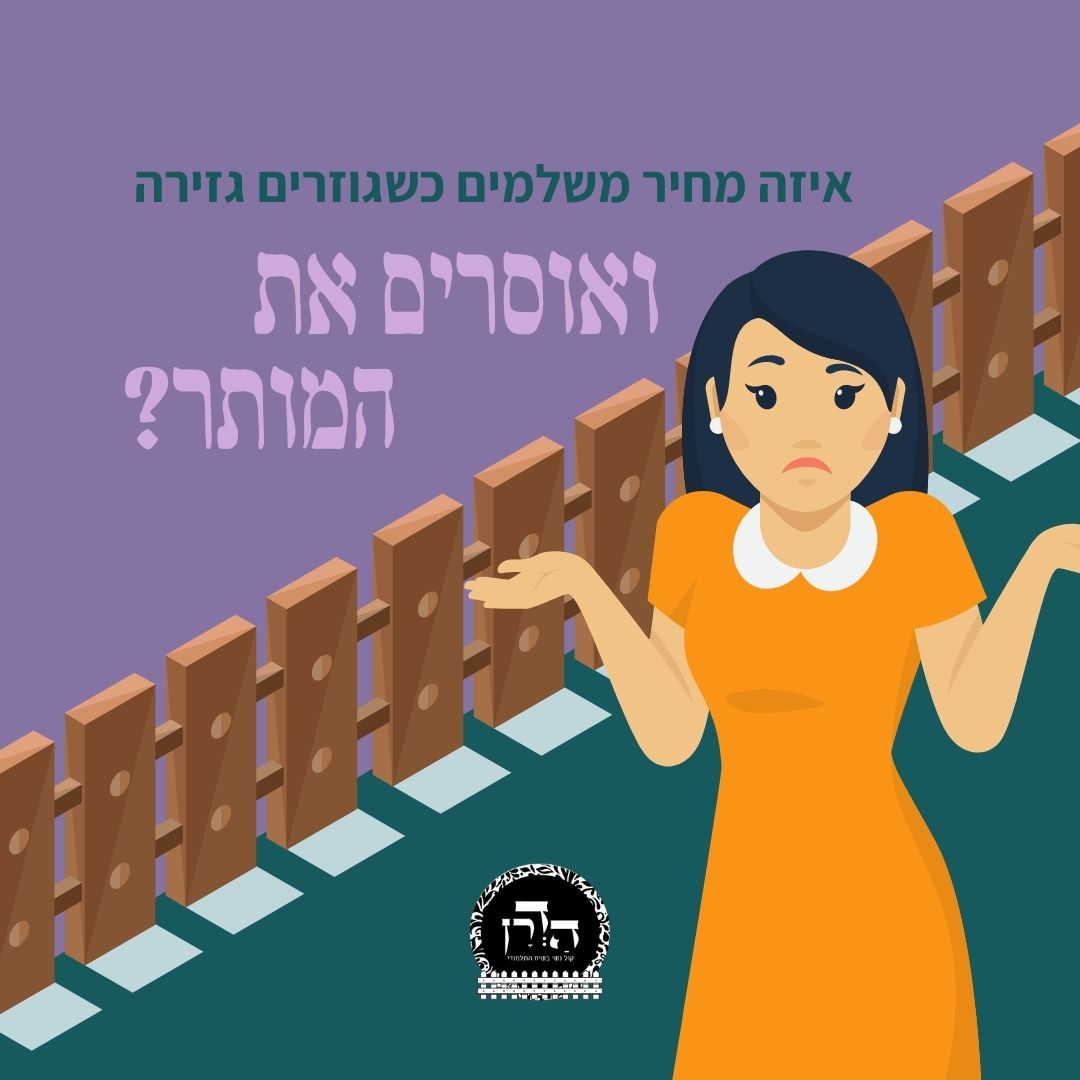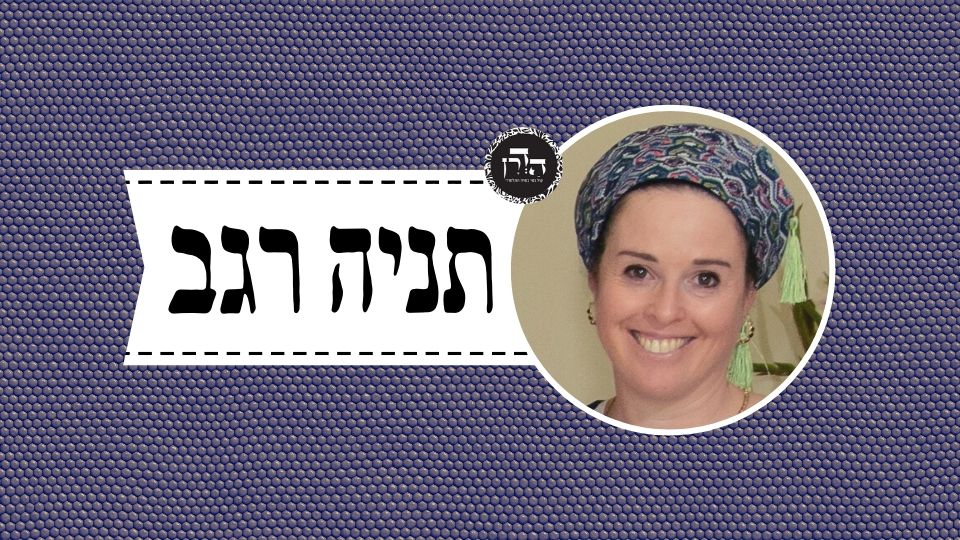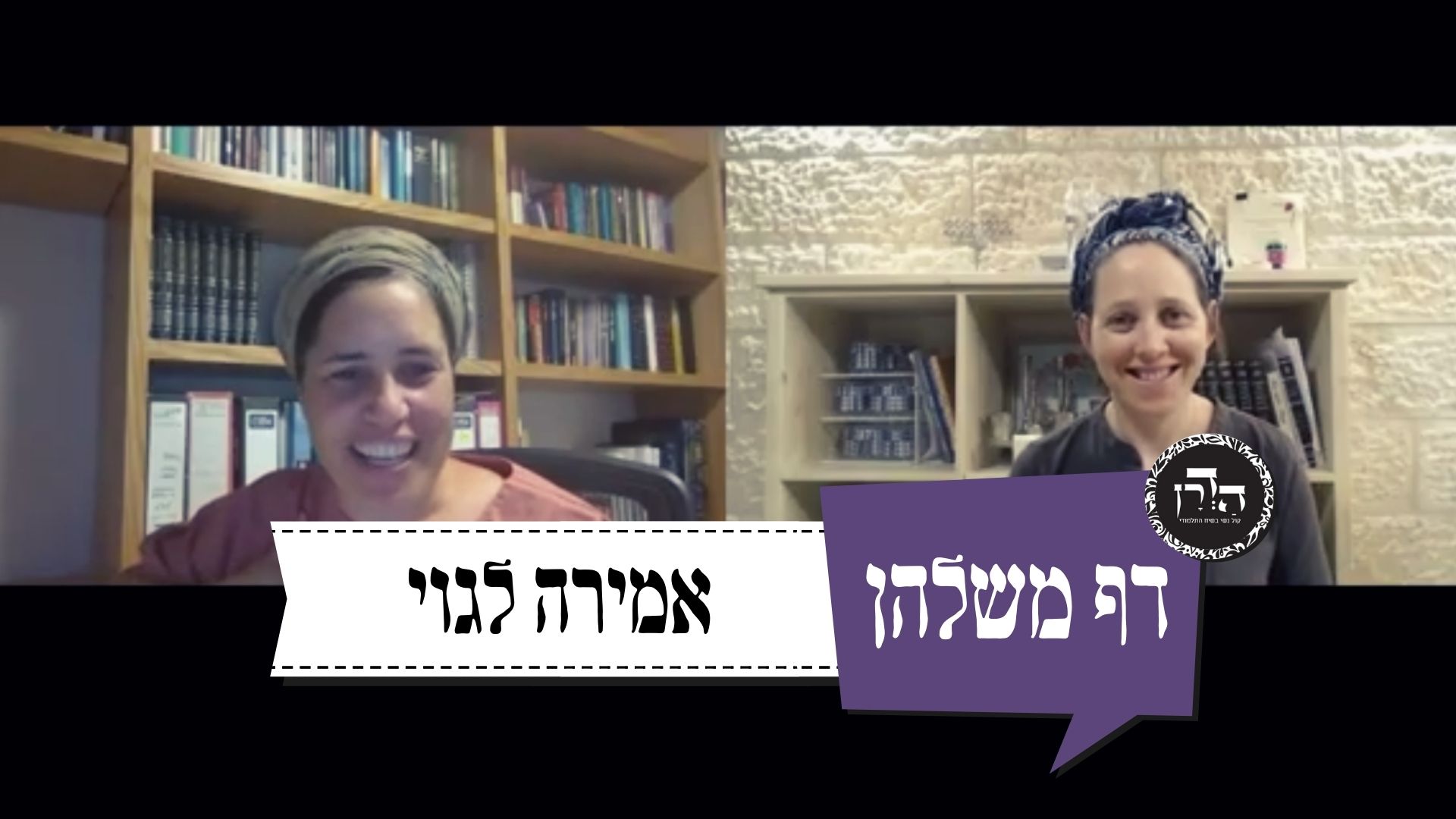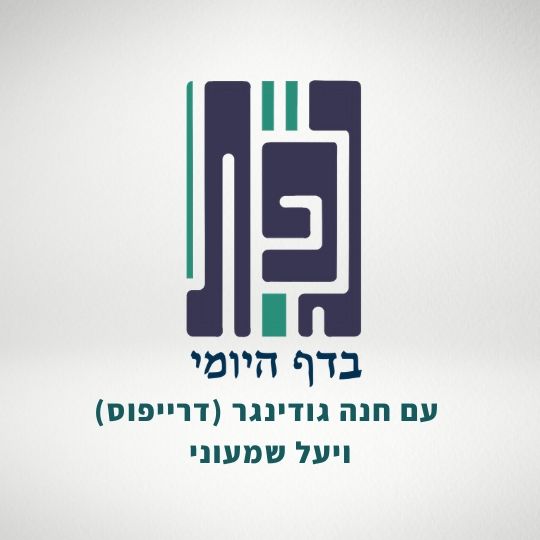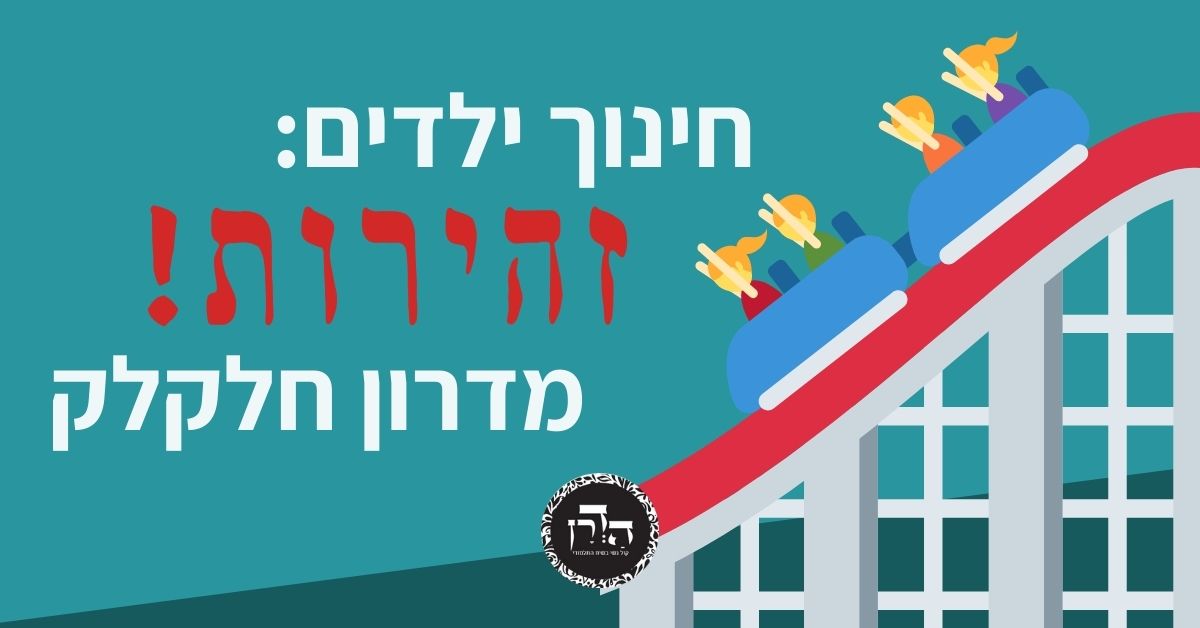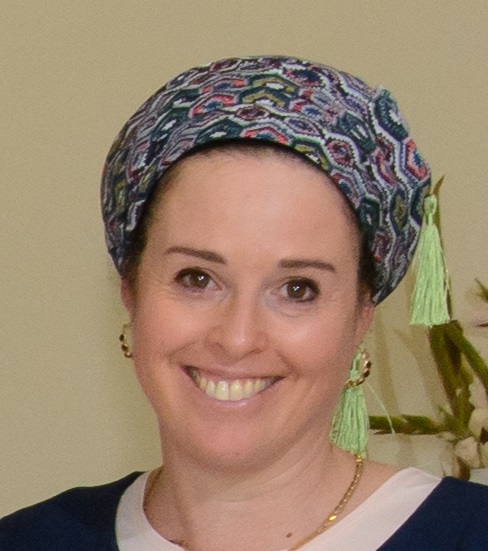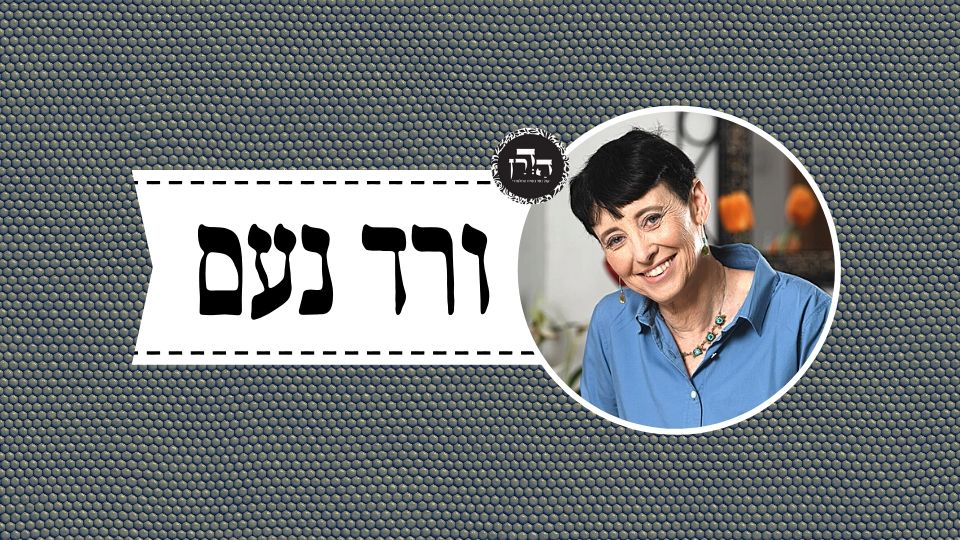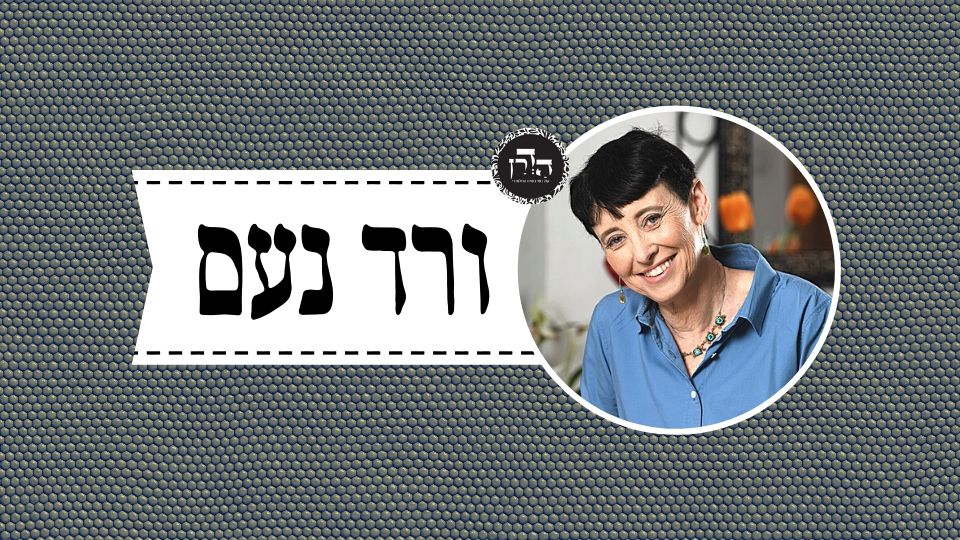הגמרא מזכירה רשימה של רבנים שמכבדים את השבת בצורה מיוחדת כמו יוסף מוקיר שבת או רבנים שהיו לוקחים חלק פעיל בהכנות לשבת. הגמרא מחברת בין קיום מצוות עונג שבת לבין קבלת שכר בעולם הזה. הגמרא גם מדברת על כמה מצוות אחרות שעליהם מקבלים שכר כגון מעשרות, לימוד תורה, אמירת אמן או יהא שמה רבה מבורך. ואז מדברים על כך שמי שמחלל שבת ייענש על כך שתהיה שריפה בביתו. אמוראים שונים נותנים סיבות שונות על מה נחרבה ירושלים – חללו שבת, ביטלו קריאת שמע, ביטלו תינוקות של בית רבן, לא היה להם בושת פנים, הושוו קרן וגדול, לא הוכיחו זה את זה, ביזו תלמידי חכמים, פסקו אנשי אמנה (אלו שלא משקרים).

כלים
הלימוד החודש מוקדש לרפואת פיליס הכט, גיטל פעשא בת מאשה רחל על ידי חברותיה הרבות שאוהבות ומעריכות אותה.
כלים
העמקה
רוצה להבין מה באמת קורה מתחת לפני השטח של הסוגיה?
שיעורים, פודקאסטים והרחבות של מיטב המורות שלנו יפתחו לך עוד זוויות וכיווני חשיבה.
חדשה בלימוד הגמרא?
זה הדף הראשון שלך? איזו התרגשות עצומה! יש לנו בדיוק את התכנים והכלים שיעזרו לך לעשות את הצעדים הראשונים ללמידה בקצב וברמה שלך, כך תוכלי להרגיש בנוח גם בתוך הסוגיות המורכבות ומאתגרות.
פסיפס הלומדות שלנו
גלי את קהילת הלומדות שלנו, מגוון נשים, רקעים וסיפורים. כולן חלק מתנועה ומסע מרגש ועוצמתי.
שבת קיט
עָבֵידְנָא יוֹמָא טָבָא לְרַבָּנַן. אָמַר רָבָא תֵּיתֵי לִי, דְּכִי אֲתָא צוּרְבָּא מֵרַבָּנַן לְקַמַּאי לְדִינָא, לָא מָזֵיגְנָא רֵישִׁי אַבֵּי סַדְיָא כַּמָּה דְּלָא מְהַפֵּיכְנָא בְּזָכוּתֵיהּ. אָמַר מָר בַּר רַב אָשֵׁי: פְּסִילְנָא לֵיהּ לְצוּרְבָּא מֵרַבָּנַן לְדִינָא. מַאי טַעְמָא? — דְּחַבִּיב עֲלַי כְּגוּפַאי, וְאֵין אָדָם רוֹאֶה חוֹבָה לְעַצְמוֹ.
I make a feast for the Sages. Rava said: May I receive my reward because when a young Torah scholar comes before me for judgment, I do not put my head on the pillow until I seek as many of his merits as possible, based on conditions and his claims. Mar bar Rav Ashi said: I am disqualified to sit in judgment of a young Torah scholar. What is the reason that I am disqualified? It is because the Torah scholar is as beloved to me as my own self, and a person does not find fault in himself.
רַבִּי חֲנִינָא מִיעֲטֵף וְקָאֵי אַפַּנְיָא דְמַעֲלֵי שַׁבְּתָא, אָמַר: ״בּוֹאוּ וְנֵצֵא לִקְרַאת שַׁבָּת הַמַּלְכָּה״. רַבִּי יַנַּאי לָבֵישׁ מָאנֵי מְעַלְּיֵי (שַׁבָּת) [וּמִיכַּסֵּי], וְאָמַר: ״בּוֹאִי כַלָּה, בּוֹאִי כַלָּה״. רַבָּה בַּר רַב הוּנָא אִיקְּלַע לְבֵי רַבָּה בַּר רַב נַחְמָן. קָרִיבוּ לֵיהּ תְּלָת סָאוֵי טַחְיֵי. אֲמַר לְהוּ: מִי הֲוָה יָדְעִיתוּן דְּאָתֵינָא? אֲמַרוּ לֵיהּ: מִי עֲדִיפַתְּ לַן מִינַּהּ?
The Gemara now returns to the issue of delight in and deference to Shabbat. Rabbi Ḥanina would wrap himself in his garment and stand at nightfall on Shabbat eve, and say: Come and we will go out to greet Shabbat the queen. Rabbi Yannai put on his garment on Shabbat eve and said: Enter, O bride. Enter, O bride. The Gemara relates: Rabba bar Rav Huna happened to come to the house of Rabba bar Rav Naḥman. They brought before him three se’a of oiled biscuits. He said to them: Did you know I was coming and prepared all of this in my honor? They said to him: Are you more important to us than Shabbat? The biscuits were prepared in deference to Shabbat.
רַבִּי אַבָּא זָבֵן בִּתְלֵיסַר אִסְתִּירֵי פְּשִׁיטֵי בִּישְׂרָא מִתְּלֵיסַר טַבָּחֵי, וּמְשַׁלֵּים לְהוּ אַצִּינּוֹרָא דְּדַשָּׁא, וַאֲמַר לְהוּ: ״אַשּׁוּר הַיָּיא, אַשּׁוּר הַיָּיא״. רַבִּי אֲבָהוּ הֲוָה יָתֵיב אַתַּכְתָּקָא דְשִׁינָּא וּמוֹשֵׁיף נוּרָא. רַב עָנָן לָבֵישׁ גּוּנְדָּא, דְּתָנָא דְּבֵי רַבִּי יִשְׁמָעֵאל: בְּגָדִים שֶׁבִּישֵּׁל בָּהֶן קְדֵירָה לְרַבּוֹ — אַל יִמְזוֹג בָּהֶן כּוֹס לְרַבּוֹ.
Rabbi Abba bought thirteen plain staters [astirei peshitei] worth half a zuz of meat from thirteen butchers in deference to Shabbat, so that he would have various types of fine meat. And he would place the meats at the door hinge at the entrance to his house to hurry to bring another type of meat. And he said to the cooks, in order to rush them: Hurry and prepare it, hurry and prepare it. The Gemara also relates: Rabbi Abbahu would sit on an ivory chair [takhteka] and fan the fire cooking the food for Shabbat, in order to play a role in preparations for Shabbat. Rav Anan would don a simple black garment for the Shabbat preparations, as the school of Rabbi Yishmael taught: While wearing the garments in which he cooked a pot of food for his master, one should not dilute a cup of wine for his Master. One should wear a garment appropriate for the task at hand.
רַב סָפְרָא מְחָרֵיךְ רֵישָׁא. רָבָא מָלַח שִׁיבּוּטָא. רַב הוּנָא מַדְלֵיק שְׁרָגֵי. רַב פָּפָּא גָּדֵיל פְּתִילָתָא. רַב חִסְדָּא פָּרֵים סִילְקָא. רַבָּה וְרַב יוֹסֵף מְצַלְּחִי צִיבֵי. רַבִּי זֵירָא מְצַתֵּת צַתּוֹתֵי. רַב נַחְמָן בַּר יִצְחָק מְכַתֵּף וְעָיֵיל, מְכַתֵּף וְנָפֵיק. אָמַר: אִילּוּ מִקַּלְעִין לִי רַבִּי אַמֵּי וְרַבִּי אַסִּי, מִי לָא מְכַתֵּיפְנָא קַמַּיְיהוּ? וְאִיכָּא דְאָמְרִי: רַבִּי אַמֵּי וְרַבִּי אַסִּי מְכַתְּפִי וְעָיְילִי, מְכַתְּפִי וְנָפְקִי, אָמְרִי: אִילּוּ אִיקְּלַע לַן רַבִּי יוֹחָנָן, מִי לָא מְכַתְּפִינַן קַמֵּיהּ?!
Rav Safra would roast the head of an animal to prepare it for Shabbat. Rava salted a shibuta fish in deference to Shabbat. Rav Huna kindled lamps in deference to Shabbat. Rav Pappa spun the wicks for the Shabbat lamp. Rav Ḥisda cut the beets in preparation for Shabbat. Rabba and Rav Yosef cut wood. Rabbi Zeira prepared thin sticks for kindling. Rav Naḥman bar Yitzḥak would load objects on his shoulder and enter, load objects on his shoulder and exit. He said: If Rabbi Ami and Rabbi Asi happened to visit me, would I not load objects on my shoulder before them? So too, it is fitting to do so in deference to Shabbat. And some say that Rabbi Ami and Rabbi Asi would load objects on their shoulders and enter, load objects on their shoulders and exit. They said: If Rabbi Yoḥanan happened to come to visit us, would we not load objects on our shoulders before him?
יוֹסֵף מוֹקַר שַׁבֵּי, הֲוָה הָהוּא גּוֹי בְּשִׁבָבוּתֵיהּ דַּהֲוָה נְפִישִׁי נִכְסֵיהּ טוּבָא. אָמְרִי לֵיהּ כַּלְדָּאֵי: כּוּלְּהוּ נִכְסֵי — יוֹסֵף מוֹקַר שַׁבֵּי אָכֵיל לְהוּ. אֲזַל זַבְּנִינְהוּ לְכוּלְּהוּ נִיכְסֵי, זְבַן בְּהוּ מַרְגָּנִיתָא, אוֹתְבַהּ בִּסְיָינֵיהּ. בַּהֲדֵי דְּקָא עָבַר מַבָּרָא — אַפְרְחֵיהּ זִיקָא, שַׁדְיֵיהּ בְּמַיָּא, בַּלְעֵיהּ כַּוְורָא. אַסְּקוּהּ, אַיְיתוּהּ אַפַּנְיָא דְּמַעֲלֵי שַׁבְּתָא. אָמְרִי: מַאן זָבֵין כִּי הַשְׁתָּא? אָמְרִי לְהוּ: זִילוּ אַמְטְיוּהּ לְגַבֵּי יוֹסֵף מוֹקַר שַׁבֵּי דִּרְגִיל דְּזָבֵין. אַמְטְיוּהּ נִיהֲלֵיהּ, זַבְנֵיהּ, קַרְעֵיהּ אַשְׁכַּח בֵּיהּ מַרְגָּנִיתָא. זַבְּנַיהּ בִּתְלֵיסַר עִילִּיָּתָא דְּדִינָרֵי דְּדַהֲבָא. פְּגַע בֵּיהּ הָהוּא סָבָא אֲמַר: מַאן דְּיָזֵיף שַׁבְּתָא — פַּרְעֵיהּ שַׁבְּתָא.
The Gemara relates with regard to Yosef who cherishes Shabbat: There was a gentile in his neighborhood whose property was extremely plentiful. The astrologers said to the gentile with regard to all his property: Yosef who cherishes Shabbat will consume it. The gentile went and sold all of his property, and with the money he received he bought a pearl, and he placed it in his hat. When he was crossing a river in a ferry, the wind blew his hat and cast it into the water, and a fish swallowed it. The fish was caught and removed from the water and it was brought to shore adjacent to nightfall on Shabbat eve. The fishermen said: Who buys fish at a time like this? The townspeople said to the fishermen: Go bring it to Yosef who cherishes Shabbat, as he regularly purchases delicacies in deference to Shabbat. They brought it to him and he purchased it. He ripped the fish open and found a pearl inside it. He sold it for thirteen vessels filled with golden dinars (Tosafot). This elderly man who encountered him and said: One who lends to Shabbat, Shabbat repays him.
בְּעָא מִינֵּיהּ רַבִּי מֵרַבִּי יִשְׁמָעֵאל בְּרַבִּי יוֹסֵי: עֲשִׁירִים שֶׁבְּאֶרֶץ יִשְׂרָאֵל בַּמָּה הֵן זוֹכִין? אֲמַר לֵיהּ: בִּשְׁבִיל שֶׁמְּעַשְּׂרִין, שֶׁנֶּאֱמַר: ״עַשֵּׂר תְּעַשֵּׂר״ — עַשֵּׂר בִּשְׁבִיל שֶׁתִּתְעַשֵּׁר. שֶׁבְּבָבֶל בַּמָּה הֵן זוֹכִין? אֲמַר לֵיהּ: בִּשְׁבִיל שֶׁמְּכַבְּדִין אֶת הַתּוֹרָה.
Rabbi Yehuda HaNasi raised a dilemma before Rabbi Yishmael, son of Rabbi Yosei: With regard to the wealthy of Eretz Yisrael, by what virtue do they merit their wealth? He said to him: Because they tithe, as it is stated: “A tithe you shall tithe [asser te’asser] from all the crops of your seed that come out of the field each year” (Deuteronomy 14:22). The Sages interpreted this homiletically: Take a tithe [asser] so that you will become wealthy [titasher]. He asked: With regard to the wealthy of Babylonia, who are not obligated to tithe, by what virtue do they merit their wealth? He said to him: Because they honor the Torah and the Sages in Babylonia.
וְשֶׁבִּשְׁאָר אֲרָצוֹת בַּמָּה הֵן זוֹכִין? אֲמַר לֵיהּ: בִּשְׁבִיל שֶׁמְּכַבְּדִין אֶת הַשַּׁבָּת. דְּאָמַר רַבִּי חִיָּיא בַּר אַבָּא: פַּעַם אַחַת נִתְאָרַחְתִּי אֵצֶל בַּעַל הַבַּיִת בְּלוּדְקִיָּא, וְהֵבִיאוּ לְפָנָיו שֻׁלְחָן שֶׁל זָהָב מַשּׂוֹי שִׁשָּׁה עָשָׂר בְּנֵי אָדָם, וְשֵׁשׁ עֶשְׂרֵה שַׁלְשְׁלָאוֹת שֶׁל כֶּסֶף קְבוּעוֹת בּוֹ, וּקְעָרוֹת וְכוֹסוֹת וְקִיתוֹנִיּוֹת וּצְלוֹחִיּוֹת קְבוּעוֹת בּוֹ, וְעָלָיו כׇּל מִינֵי מַאֲכָל וְכׇל מִינֵי מְגָדִים וּבְשָׂמִים. וּכְשֶׁמַּנִּיחִים אוֹתוֹ אוֹמְרִים: ״לַה׳ הָאָרֶץ וּמְלוֹאָהּ וְגוֹ׳״. וּכְשֶׁמְּסַלְּקִין אוֹתוֹ אוֹמְרִים: ״הַשָּׁמַיִם שָׁמַיִם לַה׳ וְהָאָרֶץ נָתַן לִבְנֵי אָדָם״. אָמַרְתִּי לוֹ: בְּנִי בַּמֶּה זָכִיתָ לְכָךְ? אָמַר לִי: קַצָּב הָיִיתִי, וּמִכׇּל בְּהֵמָה שֶׁהָיְתָה נָאָה, אָמַרְתִּי: זוֹ תְּהֵא לַשַּׁבָּת. אָמַרְתִּי לוֹ: [אַשְׁרֶיךָ שֶׁזָּכִיתָ], וּבָרוּךְ הַמָּקוֹם שֶׁזִּיכְּךָ לְכָךְ.
With regard to the wealthy of other countries, where there are no Sages, by what virtue do they merit their wealth? He said to him: Because they honor Shabbat, as Rabbi Ḥiyya bar Abba said: One time I was hosted at the home of a homeowner in Laodicea and they brought before him a table of gold that was so heavy it required sixteen people to carry it, and there were sixteen chains of silver attached to it, and there were bowls and cups and pitchers and flasks attached to it, and there were all sorts of food, and delicacies, and fragrant spices on it. And when they placed it there they would say: “The earth and all that fills it is God’s, the world and all that inhabit it” (Psalms 24:1). And when they removed it they would say: “The heavens are God’s heavens, but the earth He gave to mankind” (Psalms 115:16). I said to him: My son, what did you do to merit this? He said to me: I was a slaughterer, and when I would come across parts from every animal that I slaughtered that was fine, I would say: This will be for Shabbat. I said to him: Happy are you that you merited this, and blessed is God, Who has afforded you this merit.
אָמַר לוֹ קֵיסָר לְרַבִּי יְהוֹשֻׁעַ בֶּן חֲנַנְיָא: מִפְּנֵי מָה תַּבְשִׁיל שֶׁל שַׁבָּת רֵיחוֹ נוֹדֵף? אָמַר לוֹ: תַּבְלִין אֶחָד יֵשׁ לָנוּ וְשַׁבָּת שְׁמוֹ, שֶׁאָנוּ מְטִילִין לְתוֹכוֹ וְרֵיחוֹ נוֹדֵף. אָמַר לוֹ: תֵּן לָנוּ הֵימֶנּוּ. אָמַר לוֹ: כׇּל הַמְשַׁמֵּר אֶת הַשַּׁבָּת — מוֹעִיל לוֹ, וְשֶׁאֵינוֹ מְשַׁמֵּר אֶת הַשַּׁבָּת — אֵינוֹ מוֹעִיל לוֹ.
The Roman emperor said to Rabbi Yehoshua ben Ḥananya: Why does the fragrance of a cooked Shabbat dish diffuse? He said to him: We have a certain spice called dill [shevet], which we place in the cooked dishes and its fragrance diffuses. The emperor said to him: Give us some of it. He said to him: For anyone who observes Shabbat, the spice is effective, and for one who does not observe Shabbat, it is not effective.
אֲמַר לֵיהּ רֵישׁ גָּלוּתָא לְרַב הַמְנוּנָא: מַאי דִּכְתִיב ״וְלִקְדוֹשׁ ה׳ מְכוּבָּד״? אֲמַר לֵיהּ: זֶה יוֹם הַכִּפּוּרִים, שֶׁאֵין בּוֹ לֹא אֲכִילָה וְלֹא שְׁתִיָּה, אָמְרָה תּוֹרָה: כַּבְּדֵהוּ בִּכְסוּת נְקִיָּה. ״וְכִבַּדְתּוֹ״, רַב אָמַר: לְהַקְדִּים, וּשְׁמוּאֵל אָמַר: לְאַחֵר. אֲמַרוּ לֵיהּ בְּנֵי רַב פָּפָּא בַּר אַבָּא לְרַב פָּפָּא: כְּגוֹן אֲנַן, דִּשְׁכִיחַ לַן בִּישְׂרָא וְחַמְרָא כׇּל יוֹמָא, בְּמַאי נִישַׁנְּיֵיהּ? אֲמַר לְהוּ: אִי רְגִילִיתוּ לְאַקְדּוֹמֵי — אַחֲרוּהּ, אִי רְגִילִיתוּ לְאַחוֹרֵיהּ — אַקְדְּמוּהּ. רַב שֵׁשֶׁת בְּקַיְטָא מוֹתֵיב לְהוּ לְרַבָּנַן הֵיכָא דְּמָטְיָא שִׁימְשָׁא. בְּסִיתְוָא מוֹתֵיב לְהוּ לְרַבָּנַן הֵיכָא דְּמָטְיָא טוּלָּא, כִּי הֵיכִי דְּלֵיקוּמוּ הַיָּיא. רַבִּי זֵירָא
The Exilarch said to Rav Hamnuna: What is the meaning of that which is written, “The holy one of God is honored” (Isaiah 58:13)? Rav Hamnuna said to him: That is Yom Kippur, when there is no eating or drinking, and so the Torah said: Honor it with a clean garment. And with regard to that which is stated about Shabbat, “And you shall honor it,” Rav said: To honor Shabbat, make the Shabbat feast earlier than on other days, in order to show that one delights in eating it. And Shmuel said: To honor Shabbat, make the Shabbat feast later, so that one’s appetite will be greater. The sons of Rav Pappa bar Abba said to Rav Pappa: People like us, for whom meat and wine is found on our table every day, in what manner can we change it on Shabbat? He said to them: If you are accustomed to eating your meal early, make it later on Shabbat; if you are accustomed to making it late, make it earlier on Shabbat. This difference will underscore the uniqueness of Shabbat. The Gemara relates: In the summer, Rav Sheshet would seat the Sages who attended his lecture in a place where the sun would reach; in the winter, he would seat the Sages in a place where the shade would reach. He did this so that they would stand quickly after the lecture ended and not engage in discussion, which would detract from the time devoted to delighting in Shabbat. Rabbi Zeira
מְהַדַּר אַזּוּזֵי זוּזֵי דְּרַבָּנַן, אֲמַר לְהוּ: בְּמָטוּתָא מִינַּיְיכוּ לָא תְּחַלְּלוּנֵיהּ.
would seek pairs of Sages engaged in conversation on Shabbat and said to them: Please do not desecrate Shabbat by failing to delight in Shabbat.
אָמַר רָבָא, וְאִיתֵּימָא רַבִּי יְהוֹשֻׁעַ בֶּן לֵוִי: אֲפִילּוּ יָחִיד הַמִּתְפַּלֵּל בְּעֶרֶב שַׁבָּת צָרִיךְ לוֹמַר ״וַיְכוּלּוּ״, דְּאָמַר רַב הַמְנוּנָא: כׇּל הַמִּתְפַּלֵּל בְּעֶרֶב שַׁבָּת וְאוֹמֵר ״וַיְכוּלּוּ״, מַעֲלֶה עָלָיו הַכָּתוּב כְּאִילּוּ נַעֲשָׂה שׁוּתָּף לְהַקָּדוֹשׁ בָּרוּךְ הוּא בְּמַעֲשֵׂה בְרֵאשִׁית, שֶׁנֶּאֱמַר: ״וַיְכוּלּוּ״ — אַל תִּקְרֵי ״וַיְכוּלּוּ״ אֶלָּא ״וַיְכַלּוּ״. אָמַר רַבִּי אֶלְעָזָר: מִנַּיִין שֶׁהַדִּיבּוּר כְּמַעֲשֶׂה — שֶׁנֶּאֱמַר: ״בִּדְבַר ה׳ שָׁמַיִם נַעֲשׂוּ״.
Rava said, and some say it was Rabbi Yehoshua ben Levi who said: Even an individual who prays on Shabbat evening must recite the passage: “And the heavens and the earth were finished [vaykhullu]” (Genesis 2:1–3), as Rav Hamnuna said: Anyone who prays on Shabbat evening and recites the passage of vaykhullu, the verse ascribed him credit as if he became a partner with the Holy One, Blessed be He, in the act of Creation. As it is stated: “And the heavens and the earth were finished [vaykhullu].” Do not read it as: Were finished [vaykhullu]; rather, as: They finished [vaykhallu]. It is considered as though the Holy One, Blessed be He, and the individual who says this become partners and completed the work together. Rabbi Elazar said: From where is it derived that speech is like action? As it is stated: “By the word of God the heavens were made, and all of their hosts by the breath of His mouth” (Psalms 33:6).
אָמַר רַב חִסְדָּא אָמַר מָר עוּקְבָא: כׇּל הַמִּתְפַּלֵּל בְּעֶרֶב שַׁבָּת וְאוֹמֵר ״וַיְכוּלּוּ״, שְׁנֵי מַלְאֲכֵי הַשָּׁרֵת הַמְלַוִּין לוֹ לָאָדָם מַנִּיחִין יְדֵיהֶן עַל רֹאשׁוֹ וְאוֹמְרִים לוֹ ״וְסָר עֲוֹנֶךָ וְחַטָּאתְךָ תְּכֻפָּר״. תַּנְיָא, רַבִּי יוֹסֵי בַּר יְהוּדָה אוֹמֵר: שְׁנֵי מַלְאֲכֵי הַשָּׁרֵת מְלַוִּין לוֹ לְאָדָם בְּעֶרֶב שַׁבָּת מִבֵּית הַכְּנֶסֶת לְבֵיתוֹ, אֶחָד טוֹב וְאֶחָד רָע. וּכְשֶׁבָּא לְבֵיתוֹ וּמֹצֵא נֵר דָּלוּק וְשֻׁלְחָן עָרוּךְ וּמִטָּתוֹ מוּצַּעַת, מַלְאָךְ טוֹב אוֹמֵר: ״יְהִי רָצוֹן שֶׁתְּהֵא לְשַׁבָּת אַחֶרֶת כָּךְ״, וּמַלְאָךְ רַע עוֹנֶה ״אָמֵן״ בְּעַל כׇּרְחוֹ. וְאִם לָאו, מַלְאָךְ רַע אוֹמֵר: ״יְהִי רָצוֹן שֶׁתְּהֵא לְשַׁבָּת אַחֶרֶת כָּךְ״, וּמַלְאָךְ טוֹב עוֹנֶה ״אָמֵן״ בְּעַל כׇּרְחוֹ.
Rav Ḥisda said that Mar Ukva said: One who prays on Shabbat evening and recites vaykhullu, the two ministering angels who accompany the person at all times place their hands on his head and say to him: “And your iniquity has passed, and your sin has been atoned” (Isaiah 6:7). It was taught in a baraita: Rabbi Yosei bar Yehuda says: Two ministering angels accompany a person on Shabbat evening from the synagogue to his home, one good angel and one evil angel. And when he reaches his home and finds a lamp burning and a table set and his bed made, the good angel says: May it be Your will that it shall be like this for another Shabbat. And the evil angel answers against his will: Amen. And if the person’s home is not prepared for Shabbat in that manner, the evil angel says: May it be Your will that it shall be so for another Shabbat, and the good angel answers against his will: Amen.
אָמַר רַבִּי אֶלְעָזָר: לְעוֹלָם יְסַדֵּר אָדָם שֻׁלְחָנוֹ בְּעֶרֶב שַׁבָּת, אַף עַל פִּי שֶׁאֵינוֹ צָרִיךְ אֶלָּא לִכְזַיִת. וְאָמַר רַבִּי חֲנִינָא: לְעוֹלָם יְסַדֵּר אָדָם שֻׁלְחָנוֹ בְּמוֹצָאֵי שַׁבָּת, אַף עַל פִּי שֶׁאֵינוֹ צָרִיךְ אֶלָּא לִכְזַיִת. חַמִּין בְּמוֹצָאֵי שַׁבָּת — מְלוּגְמָא, פַּת חַמָּה בְּמוֹצָאֵי שַׁבָּת — מְלוּגְמָא. רַבִּי אֲבָהוּ הֲוָה עָבְדִין לֵיהּ בְּאַפּוֹקֵי שַׁבְּתָא עִיגְלָא תִּילְתָּא, הֲוָה אָכֵיל מִינֵּיהּ כּוּלְיְיתָא. כִּי גְדַל אֲבִימִי בְּרֵיהּ, אֲמַר לֵיהּ: לְמָה לָךְ לְאַפְסוֹדֵי כּוּלֵּי הַאי, נִשְׁבּוֹק כּוּלְיְיתָא מִמַּעֲלֵי שַׁבְּתָא. שַׁבְקוּה וַאֲתָא אַרְיָא אַכְלֵיהּ.
Rabbi Elazar said: A person should always set his table on Shabbat eve with all the preparations for an important feast, even if he only needs the table set for an olive-bulk of food. And Rabbi Ḥanina said: A person should always set his table at the conclusion of Shabbat, Saturday night, for a feast in deference to the Shabbat that passed, even if he only needs the table set for an olive-bulk of food. And with regard to the meal at the conclusion of Shabbat, they said: Hot water after Shabbat is a remedy [melugma], warm bread at the conclusion of Shabbat is a remedy. The Gemara relates: They would prepare for Rabbi Abbahu at the conclusion of Shabbat a third-born calf, and he would eat one kidney from it. When his son Avimi grew up, he said to his father: Why do you waste so much? Let us leave a kidney over from Shabbat eve, and you will not need to slaughter an entire calf for that purpose. Indeed, they left the calf and did not slaughter it, and a lion came and ate it. This teaches that one should not be miserly when it comes to honoring Shabbat.
אָמַר רַבִּי יְהוֹשֻׁעַ בֶּן לֵוִי: כׇּל הָעוֹנֶה ״אָמֵן יְהֵא שְׁמֵיהּ רַבָּא מְבָרַךְ״ בְּכׇל כֹּחוֹ, קוֹרְעִין לוֹ גְּזַר דִּינוֹ, שֶׁנֶּאֱמַר: ״בִּפְרוֹעַ פְּרָעוֹת בְּיִשְׂרָאֵל בְּהִתְנַדֵּב עָם בָּרְכוּ ה׳״. מַאי טַעְמָא ״בִּפְרוֹעַ פְּרָעוֹת״ — מִשּׁוּם דְּ״בָרְכוּ ה׳״. רַבִּי חִיָּיא בַּר אַבָּא אָמַר רַבִּי יוֹחָנָן: אֲפִילּוּ יֵשׁ בּוֹ שֶׁמֶץ שֶׁל עֲבוֹדָה זָרָה — מוֹחֲלִין לוֹ. כְּתִיב הָכָא: ״בִּפְרוֹעַ פְּרָעוֹת״, וּכְתִיב הָתָם: ״כִּי פָרוּעַ הוּא״. אָמַר רֵישׁ לָקִישׁ: כָּל הָעוֹנֶה ״אָמֵן״ בְּכׇל כֹּחוֹ פּוֹתְחִין לוֹ שַׁעֲרֵי גַן עֵדֶן, שֶׁנֶּאֱמַר: ״פִּתְחוּ שְׁעָרִים וְיָבֹא גוֹי צַדִּיק שׁוֹמֵר אֱמוּנִים״, אַל תִּיקְרֵי ״שׁוֹמֵר אֱמוּנִים״ אֶלָּא: ״שֶׁאוֹמְרִים אָמֵן״. מַאי ״אָמֵן״? אָמַר רַבִּי חֲנִינָא: ״אֵל מֶלֶךְ נֶאֱמָן״.
Apropos the reward for honoring Shabbat, the Gemara cites statements about the reward for answering amen. Rabbi Yehoshua ben Levi said that anyone who answers: Amen, may His great name be blessed, wholeheartedly, with all his might, they rip his sentence, as it is stated: “When punishments are annulled in Israel, when the people offer themselves, bless the Lord” (Judges 5:2). What is the reason for when punishments are annulled? Because the Jewish people blessed God. When one recites: Amen, may His great name be blessed, and blesses God, his punishment is annulled. Rabbi Ḥiyya bar Abba said that Rabbi Yoḥanan said: Even if one has within him a trace of idolatry, when he answers amen he is forgiven. It is written here, in the verse above: “When punishments [pera’ot] are annulled.” And it is written there, with regard to the sin of the Golden Calf: “And Moses saw that the nation was wild [paru’a], for Aaron had let them loose for anyone who might rise against them” (Exodus 32:25). Even one with the wildness of idolatry is forgiven. Reish Lakish said: One who answers amen with all his strength, they open the gates of the Garden of Eden before him, as it is stated: “Open the gates, and a righteous nation shall come who keeps the faith” (Isaiah 26:2). Do not read: Who keeps [shomer] the faith [emunim], but rather: Who say [she’omerim] amen. What is the allusion of the word amen? Rabbi Ḥanina said: It is an acronym of the words: God, faithful King [El Melekh ne’eman].
אָמַר רַב יְהוּדָה בְּרֵיהּ דְּרַב שְׁמוּאֵל מִשְּׁמֵיהּ דְּרַב: אֵין הַדְּלֵיקָה מְצוּיָה אֶלָּא בִּמְקוֹם שֶׁיֵּשׁ חִילּוּל שַׁבָּת, שֶׁנֶּאֱמַר: ״וְאִם לֹא תִשְׁמְעוּ אֵלַי לְקַדֵּשׁ אֶת יוֹם הַשַּׁבָּת וּלְבִלְתִּי שְׂאֵת מַשָּׂא וְגוֹ׳ וְהִצַּתִּי אֵשׁ בִּשְׁעָרֶיהָ וְאָכְלָה אַרְמְנוֹת יְרוּשָׁלִַים וְלֹא תִכְבֶּה״. מַאי ״וְלֹא תִכְבֶּה״? אָמַר רַב נַחְמָן בַּר יִצְחָק: בְּשָׁעָה שֶׁאֵין בְּנֵי אָדָם מְצוּיִין לְכַבּוֹתָהּ. אָמַר אַבָּיֵי: לָא חָרְבָה יְרוּשָׁלַיִם אֶלָּא בִּשְׁבִיל שֶׁחִלְּלוּ בָּהּ אֶת הַשַּׁבָּת, שֶׁנֶּאֱמַר: ״וּמִשַׁבְּתוֹתַי הֶעְלִימוּ עֵינֵיהֶם וָאֵחַל בְּתוֹכָם״.
Rav Yehuda, son of Rav Shmuel, said in the name of Rav: Fire is only found in a place where there is desecration of Shabbat, as it is stated: “And if you do not heed Me to sanctify the day of Shabbat, and to refrain from carrying burdens and come to the gates of Jerusalem on the day of Shabbat, and I will light a fire in its gates and it will consume the palaces of Jerusalem and it will not be extinguished” (Jeremiah 17:27). The Gemara asks: What is the meaning of: And it will not be extinguished? Rav Naḥman bar Yitzḥak said: Fire will break out at a time when people are not found to extinguish it. Abaye said: Jerusalem was destroyed only because people desecrated the Shabbat in it, as it is stated: “And from My Shabbatot they averted their eyes, and I was profaned among them” (Ezekiel 22:26). Several punishments were decreed to befall Jerusalem as punishment for this transgression.
אָמַר רַבִּי אֲבָהוּ: לֹא חָרְבָה יְרוּשָׁלַיִם אֶלָּא בִּשְׁבִיל שֶׁבִּיטְּלוּ קְרִיאַת שְׁמַע שַׁחֲרִית וְעַרְבִית, שֶׁנֶּאֱמַר: ״הוֹי מַשְׁכִּימֵי בַבֹּקֶר שֵׁכָר יִרְדֹּפוּ וְגוֹ׳״, וּכְתִיב: ״וְהָיָה כִנּוֹר וָנֶבֶל תּוֹף וְחָלִיל וָיַיִן מִשְׁתֵּיהֶם וְאֵת פּוֹעַל ה׳ לֹא יַבִּיטוּ״, וּכְתִיב: ״לָכֵן גָּלָה עַמִּי מִבְּלִי דָעַת״.
The Gemara suggests additional reasons for the destruction of Jerusalem.
Rabbi Abbahu said: Jerusalem was destroyed only because its citizens intentionally omitted recitation of Shema morning and evening, as it is stated: “Woe to those who rise early in the morning and pursue the drink and are aflame from wine until late in the evening” (Isaiah 5:11). And it is written in the continuation of that passage: “And their drinking parties have lyre and lute, drum and flute and wine, and they do not look upon the actions of God, and they do not see His hands’ creations” (Isaiah 5:12). This means that in the morning and evening, when the Jews should have been reciting Shema, they were drinking wine and liquor. And it is written in that passage: “Therefore My nation is being exiled for its ignorance; its honor will die of hunger and its multitudes will be parched with thirst” (Isaiah 5:13).
אָמַר רַב הַמְנוּנָא: לֹא חָרְבָה יְרוּשָׁלַיִם אֶלָּא בִּשְׁבִיל שֶׁבִּיטְּלוּ בָּהּ תִּינוֹקוֹת שֶׁל בֵּית רַבָּן, שֶׁנֶּאֱמַר: ״שְׁפוֹךְ עַל עוֹלָל בַּחוּץ וְגוֹ׳״. מַה טַּעַם ״שְׁפוֹךְ״ — מִשּׁוּם דְּ״עוֹלָל בַּחוּץ״. אָמַר עוּלָּא: לֹא חָרְבָה יְרוּשָׁלַיִם אֶלָּא מִפְּנֵי שֶׁלֹּא הָיָה לָהֶם בּוֹשֶׁת פָּנִים זֶה מִזֶּה, שֶׁנֶּאֱמַר: ״הוֹבִישׁוּ כִּי תוֹעֵבָה עָשׂוּ גַּם בּוֹשׁ לֹא יֵבוֹשׁוּ וְגוֹ׳״. אָמַר רַבִּי יִצְחָק: לֹא חָרְבָה יְרוּשָׁלַיִם אֶלָּא בִּשְׁבִיל שֶׁהוּשְׁווּ קָטָן וְגָדוֹל, שֶׁנֶּאֱמַר: ״וְהָיָה כָעָם כַּכֹּהֵן״, וּכְתִיב בָּתְרֵיהּ: ״הִבּוֹק תִּבּוֹק הָאָרֶץ״.
Rav Hamnuna said: Jerusalem was destroyed only because schoolchildren there were interrupted from studying Torah, as it is stated: “And I am filled with the wrath of God, I cannot contain it, pour it onto the infants in the street and onto the gathering of youths together, for men and women alike will be captured, the elderly along with those of advanced years” (Jeremiah 6:11). Rav Hamnuna explains: What is the reason that the wrath is poured? It is because infants are outside in the streets and are not studying Torah.
Ulla said: Jerusalem was destroyed only because people had no shame before each other, as it is stated: “They acted shamefully; they have performed abominations, yet they neither were ashamed nor did they know humiliation. Therefore, they will fall among the fallen, they will fail at the time that I punish them, said God” (Jeremiah 6:15).
Rabbi Yitzḥak said: Jerusalem was destroyed only because its small and the great citizens were equated. They did not properly value the prominent leaders of their generation, as it is stated: “And the common people were like the priest, the slave like his master, the maidservant like her mistress, the buyer like the seller, the lender like the borrower, the creditor like the one indebted to him” (Isaiah 24:2). And it is written afterward: “The land shall be utterly desolate and completely plundered, for God has said this” (Isaiah 24:3).
אָמַר רַב עַמְרָם בְּרֵיהּ דְּרַבִּי שִׁמְעוֹן בַּר אַבָּא, אָמַר רַבִּי שִׁמְעוֹן בַּר אַבָּא, אָמַר רַבִּי חֲנִינָא: לֹא חָרְבָה יְרוּשָׁלַיִם אֶלָּא בִּשְׁבִיל שֶׁלֹּא הוֹכִיחוּ זֶה אֶת זֶה, שֶׁנֶּאֱמַר: ״הָיוּ שָׂרֶיהָ כְּאַיָּלִים לֹא מָצְאוּ מִרְעֶה״. מָה אַיִל זֶה, רֹאשׁוֹ שֶׁל זֶה בְּצַד זְנָבוֹ שֶׁל זֶה, אַף יִשְׂרָאֵל שֶׁבְּאוֹתוֹ הַדּוֹר כָּבְשׁוּ פְּנֵיהֶם בַּקַּרְקַע וְלֹא הוֹכִיחוּ זֶה אֶת זֶה. אָמַר רַבִּי יְהוּדָה: לֹא חָרְבָה יְרוּשָׁלַיִם אֶלָּא בִּשְׁבִיל שֶׁבִּיזּוּ בָּהּ תַּלְמִידֵי חֲכָמִים, שֶׁנֶּאֱמַר: ״וַיִּהְיוּ מַלְעִיבִים בְּמַלְאֲכֵי הָאֱלֹהִים וּבוֹזִים דְּבָרָיו וּמִתַּעְתְּעִים בִּנְבִיאָיו עַד עֲלוֹת חֲמַת ה׳ בְּעַמּוֹ עַד [לְ]אֵין מַרְפֵּא״. מַאי ״עַד לְאֵין מַרְפֵּא״? אָמַר רַב יְהוּדָה אָמַר רַב: כׇּל הַמְבַזֶּה תַּלְמִידֵי חֲכָמִים אֵין לוֹ רְפוּאָה לְמַכָּתוֹ.
Rav Amram, son of Rabbi Shimon bar Abba, said that Rabbi Shimon bar Abba said that Rabbi Ḥanina said: Jerusalem was destroyed only because the people did not rebuke one another, as it is stated: “Her ministers were like stags that found no pasture, and they walked without strength before their pursuer” (Lamentations 1:6). Just as this stag turns its head toward the other’s tail when it grazes, and each one feeds on its own, so too, the Jewish people in that generation lowered their faces to the ground and did not rebuke one another.
Rabbi Yehuda said: Jerusalem was destroyed only because they disparaged the Torah scholars in it, as it is stated: “And they mocked the messengers of God and disdained His words and taunted His prophets, until the wrath of God arose against His people, until it could not be healed” (II Chronicles 36:16). What is the meaning of: Until it could not be healed? Rav Yehuda said that Rav said: It means that anyone who disparages Torah scholars cannot be healed from his wound.
אָמַר רַב יְהוּדָה אָמַר רַב: מַאי דִּכְתִיב ״אַל תִּגְּעוּ בִּמְשִׁיחָי וּבִנְבִיאַי אַל תָּרֵעוּ״, ״אַל תִּגְעוּ בִּמְשִׁיחָי״ — אֵלּוּ תִּינוֹקוֹת שֶׁל בֵּית רַבָּן, ״וּבִנְבִיאַי אַל תָּרֵעוּ״ — אֵלּוּ תַּלְמִידֵי חֲכָמִים. אָמַר רֵישׁ לָקִישׁ מִשּׁוּם רַבִּי יְהוּדָה נְשִׂיאָה: אֵין הָעוֹלָם מִתְקַיֵּים אֶלָּא בִּשְׁבִיל הֶבֶל תִּינוֹקוֹת שֶׁל בֵּית רַבָּן. אֲמַר לֵיהּ רַב פָּפָּא לְאַבָּיֵי: דִּידִי וְדִידָךְ מַאי? אֲמַר לֵיהּ: אֵינוֹ דּוֹמֶה הֶבֶל שֶׁיֵּשׁ בּוֹ חֵטְא לְהֶבֶל שֶׁאֵין בּוֹ חֵטְא. וְאָמַר רֵישׁ לָקִישׁ מִשּׁוּם רַבִּי יְהוּדָה נְשִׂיאָה: אֵין מְבַטְּלִין תִּינוֹקוֹת שֶׁל בֵּית רַבָּן אֲפִילּוּ לְבִנְיַן בֵּית הַמִּקְדָּשׁ. וְאָמַר רֵישׁ לָקִישׁ לְרַבִּי יְהוּדָה נְשִׂיאָה: כָּךְ מְקּוּבְּלַנִי מֵאֲבוֹתַי, וְאָמְרִי לַהּ מֵאֲבוֹתֶיךָ: כׇּל עִיר שֶׁאֵין בָּהּ תִּינוֹקוֹת שֶׁל בֵּית רַבָּן מַחֲרִיבִין אוֹתָהּ, רָבִינָא אָמַר: מַחְרִימִין אוֹתָהּ.
Rav Yehuda said that Rav said: What is the meaning of that which is written: “Do not touch My anointed ones and do My prophets no harm” (I Chronicles 16:22)? “Do not touch My anointed ones,” these are the schoolchildren, who are as precious and important as kings and priests (Maharsha); “and do not harm My prophets,” these are Torah scholars. Reish Lakish said in the name of Rabbi Yehuda Nesia: The world only exists because of the breath, i.e., reciting Torah, of schoolchildren. Rav Pappa said to Abaye: My Torah study and yours, what is its status? Why is the Torah study of adults worth less? He said to him: The breath of adults, which is tainted by sin, is not similar to the breath of children, which is not tainted by sin. And Reish Lakish said in the name of Rabbi Yehuda Nesia: One may not interrupt schoolchildren from studying Torah, even in order to build the Temple. And Reish Lakish said to Rabbi Yehuda Nesia: I have received from my ancestors, and some say that he said to him: I have received from your ancestors as follows: Any city in which there are no schoolchildren studying Torah, they destroy it. Ravina said: They leave it desolate.
וְאָמַר רָבָא: לֹא חָרְבָה יְרוּשָׁלַיִם אֶלָּא בִּשְׁבִיל שֶׁפָּסְקוּ מִמֶּנָּה אַנְשֵׁי אֲמָנָה, שֶׁנֶּאֱמַר: ״שׁוֹטְטוּ בְּחוּצוֹת יְרוּשָׁלִַים וּרְאוּ נָא [וּדְעוּ וּבַקְשׁוּ בִרְחוֹבוֹתֶיהָ אִם תִּמְצְאוּ אִישׁ] (אִם יֵשׁ אִישׁ) עוֹשֶׂה מִשְׁפָּט מְבַקֵּשׁ אֱמוּנָה וְאֶסְלַח לָהּ״. אִינִי?! וְהָאָמַר רַב קַטִּינָא: אֲפִילּוּ בִּשְׁעַת כִּשְׁלוֹנָהּ שֶׁל יְרוּשָׁלָיִם לֹא פָּסְקוּ מִמֶּנָּה אַנְשֵׁי אֲמָנָה, שֶׁנֶּאֱמַר: ״כִּי יִתְפֹּשׂ אִישׁ בְּאָחִיו בֵּית אָבִיו לֵאמֹר שִׂמְלָה לְכָה קָצִין תִּהְיֶה לָּנוּ״, דְּבָרִים שֶׁבְּנֵי אָדָם מִתְכַּסִּין בָּהֶן כְּשִׂמְלָה יֶשְׁנָן בְּיָדֶיךָ. ״וְהַמַּכְשֵׁלָה הַזֹּאת תַּחַת יָדֶךָ״,
And Rava said: Jerusalem was destroyed only because there were no more trustworthy people there, as it is stated: “Roam about the streets of Jerusalem and see, and search its plazas, if you can find a person, who acts justly, who seeks integrity, that I should forgive it” (Jeremiah 5:1). The Gemara asks: Is that so? Didn’t Rav Ketina say: Even at the time of Jerusalem’s failure, trustworthy people did not cease there, as it is stated: “For a man will grab his brother of his father’s house and say: You have a garment. Come be a chief over us and let this ruin be under your care” (Isaiah 3:6)? Things that people use to cover up like a garment, secrets, are in your hands and you know about them. Therefore, you should be a leader of the community. And that which is stated: “And let this ruin be under your care,” meaning:


